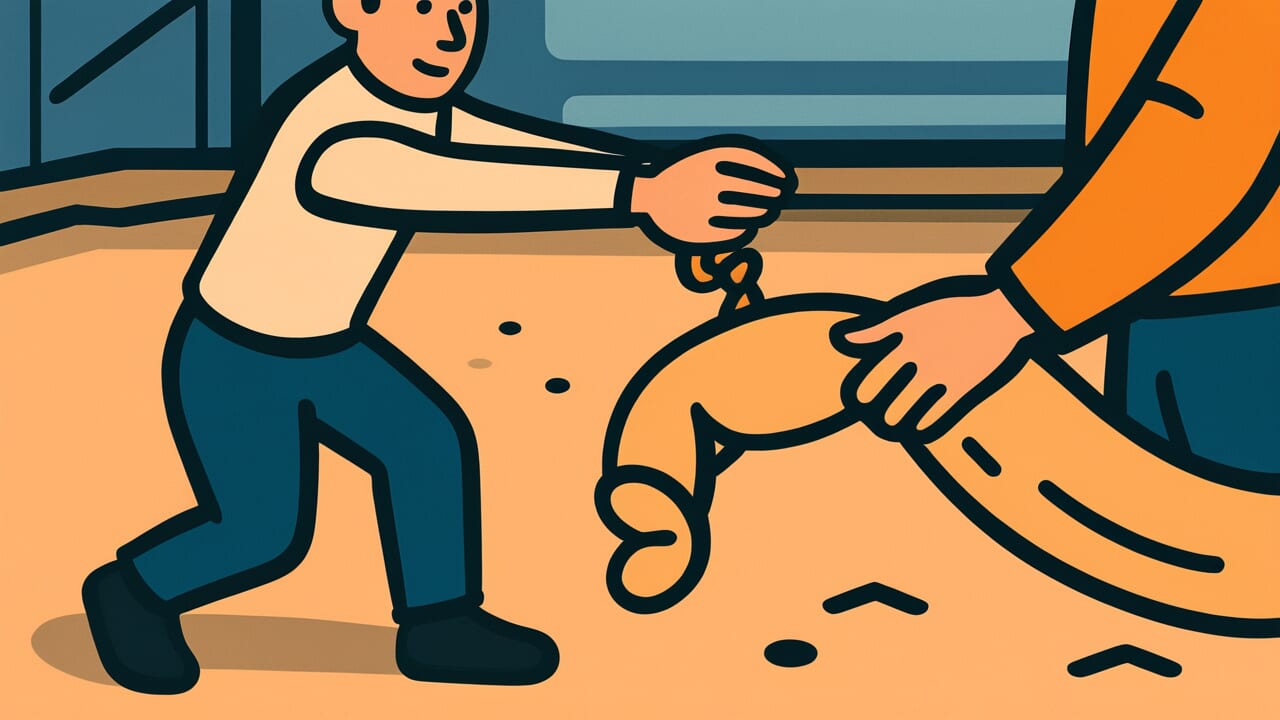How to Read “What you pick up is found profit”
Otoshita mono wa hiroi toku
Meaning of “What you pick up is found profit”
This proverb teaches that even the small act of picking up something dropped on the ground accumulates virtue. It expresses the idea that good deeds matter, even when no one is watching and even when they seem trivial.
People use this saying when they want to convey the value of small, unnoticed good deeds. For example, picking up trash on the street or offering a small kindness to someone in need.
These are actions not worth mentioning to others, but this proverb emphasizes their importance.
The reason for using this expression is to communicate that we shouldn’t measure the value of good deeds by their size. In modern times, it connects to the spirit of “starting small and working steadily.”
It’s understood as practical life wisdom. The accumulation of small daily kindnesses eventually shapes your character and builds good relationships with those around you.
Origin and Etymology
There are no clear records of when this proverb first appeared in literature. However, looking at the structure of the phrase reveals an interesting background.
The expression “what you pick up” has two possible interpretations. One is something you yourself dropped. The other is something someone else dropped.
In this proverb, it’s believed to refer to the latter—the act of picking up something lying on the ground.
The concept of “toku” (virtue) has held an important place in Japanese moral values, strongly influenced by Buddhist thought. Good deeds accumulate virtue, which eventually returns to you.
This is the idea of karma and retribution. Buddhist tales contain many teachings that even small good deeds should not be taken lightly.
During the Edo period, the idea of “accumulating hidden virtue” spread among common people. Doing good deeds in secret was considered a virtue.
Acts like picking up dropped items and returning them were encouraged as part of this. This proverb likely emerged naturally from such common moral teachings.
Usage Examples
- I turned in a lost item at the police box at the station—what you pick up is found profit, after all
- My daily routine is picking up trash in the park during my morning walk, because what you pick up is found profit
Universal Wisdom
Behind this proverb’s long transmission lies a fundamental human question. That question is: “How should people behave when no one is watching?”
Humans naturally want their actions to be recognized. The desire to be praised, acknowledged, and thanked is natural. However, this proverb teaches the value of actions done without expecting such rewards.
What’s interesting is that this proverb points to “virtue” as an invisible reward. Even when no one is watching, good deeds definitely accumulate within you.
This appears not as recognition from others, but as fulfillment of your own inner self. This is a profound insight.
Humans are social creatures who survive by supporting each other. But this mutual support isn’t necessarily a direct exchange relationship.
Someone’s small kindness gradually makes society better as it circulates. This proverb contains an understanding of this indirect system of mutual aid.
Our ancestors knew this truth. Character is formed not just in moments of big decisions, but through the accumulation of small daily choices.
How you behave when no one is watching reveals your true self. This is the wisdom they passed down.
When AI Hears This
Lost items hide an interesting economic paradox. A thousand-yen wallet might be worth tens of thousands of yen to its owner, including cash, cards, and treasured photos.
But the finder doesn’t know this. This is information asymmetry.
What’s fascinating is that if the finder thinks rationally, they weigh “the cost of reporting to police” against “the expected value of a reward.”
Economist Akerlof won a Nobel Prize for his theory about used car markets. Because only sellers know a car’s true condition, both good and bad cars sell for the same low price.
Lost items work the same way. The finder can’t judge “whether it’s truly valuable,” so their motivation to return it weakens.
That’s why the concept of “virtue” becomes important. In economics, this corresponds to reputation systems and social capital.
Even when monetary calculations don’t add up, invisible rewards like trust from others and self-satisfaction compensate for market mechanism failures.
In other words, “found profit” is humanity’s clever mechanism to prevent society from collapsing in situations with information asymmetry.
Lessons for Today
Modern society emphasizes efficiency and results. Visible outcomes, quantifiable achievements, immediate rewards. Amid these values, this proverb suggests a different way of living.
Your daily life contains countless moments of small choices that no one will recognize. Holding the elevator button and waiting. Returning meeting room chairs to their places.
Quickly wiping down the sink after using it. These actions won’t go on your resume. They won’t get “likes” on social media.
But this proverb teaches that these small actions are what create who you are. How you behave when no one is watching is your true self.
Here’s the suggestion for those of us living today. Pursuing big success is fine, but why not cherish daily small kindnesses?
They’re never a loss. Rather, you’re planting seeds that will enrich your life without you even noticing.
Small good deeds are an investment in yourself. They will definitely return to you in unexpected ways.



Comments